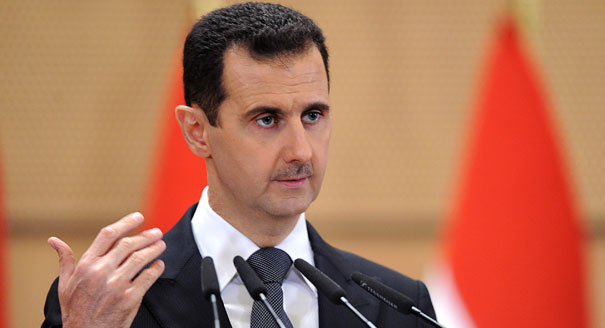Iran Not Sensitive on Assad Remaining in the Long Run

- I do not see any sign of change in Iran's position with regard to its support of Assad; except that Iran, Russia, and other parties are making considerable moves to reach a diplomatic solution for the crisis in Syria and these measures have attracted the attention of the opposition.
- In my opinion, efforts made for a diplomatic solution are because of Syria's domestic developments, where the military option from inside the country and a military intervention by international forces have reached a deadlock.
- I don't believe that Iran or Russia has changed its position; but they will both certainly change their literature to encourage the opposition to sit at the negotiation table.
- There is a difference between theoretical and practical discussions with regard to Iran's support of Assad. There might be some political centers in Iran which have different theoretical views on this issue; for example, they might analyze the costs of supporting Assad.
- But in practice, what is now dominant is the idea of supporting Assad against the opposition groups, which, with the support of foreign countries, pursue the downfall of the Syrian government.
- Iran's position regarding the issue of Syria can be defined in two sentences: supporting the people against the government and supporting the government against foreign enemies.
- Perhaps Iran feels morally obliged to support a regime which, during the 8-year war with Iraq, defended it against the unanimous support of western and Arab countries for Saddam. Thus, it seems impossible that Iran would leave Syria alone now that it is being attacked by the same countries.
- Of course, this does not mean that Iran would be inconsiderate towards the people of Syria; it will instead support the rights of the Syrian people.
- The point here is that what is being attacked is a structure which has a revolutionary approach and which supports the resistance front.
- The issue here is not supporting an individual or a system. Iran's concern is that part of the resistance front has been attacked.
- In the long run, Iran can support a structure which defends the resistance movement but within which Assad is not defined, but such a stance is not possible in the short run, for if Assad is overthrown, there are no longer people like Haytham Manna to take power in Syria.
- It means that Arab countries like Saudi Arabia and Qatar, and also western countries like the US, do not intend for power to be given to Haytham Manna. They seek the collapse of the Syrian government; otherwise they would not have brutally directed Syria towards destruction.
- Of course, I do not intend to justify the actions of the Syrian government. Haytham Manna, who has never supported armed struggle, has sympathy for the country, the people, and the army of Syria, but the US and its allies are not willing to render power to him.
- Therefore, in order to maintain this structure which supports the resistance, changes must happen gradually. It means that Iran, in the long run, has no sensitivity on Assad remaining in power; for if power is gradually transferred, then the system can be maintained; but if this change occurs in a hasty development, then there is no guarantee that power would be rendered to a national and popular movement.
- That is why Iran insists that Assad remain in power at least until the 2014 presidential elections.

